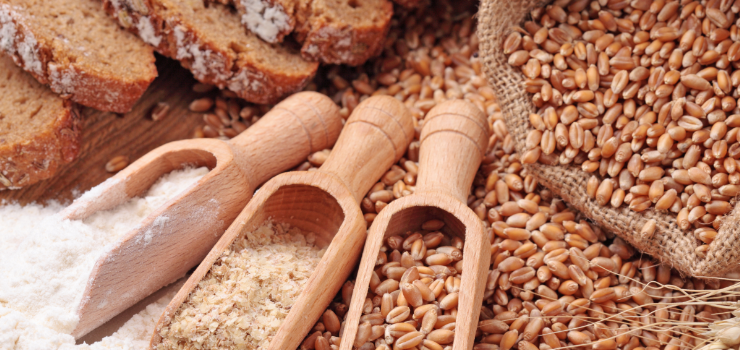The Role of Sodium Aluminium Phosphate in Biscuit and Cookie Manufacturing

Additives are essential to the food industry’s ability to produce goods that satisfy the required levels of consistency and quality. One such essential additive is Sodium Aluminium Phosphate (SAP), which significantly impacts the manufacturing of biscuits and cookies. SAP, a versatile leavening agent, works in synergy with other ingredients to produce the ideal texture, volume, and taste in baked goods. This article delves into the role of Sodium Aluminium Phosphate in biscuit and cookie manufacturing, focusing on its application, benefits, and importance in the production process.
Understanding Sodium Aluminium Phosphate
Sodium Aluminium Phosphate is a food additive used primarily as a leavening agent in the baking industry. It is an acidic ingredient that creates carbon dioxide gas—which makes bread or batter rise—when coupled with baking soda (sodium bicarbonate). The compound is often found in commercial baking powders and is valued for its ability to control the leavening process, ensuring consistent results.
In the manufacturing of biscuits and cookies, Sodium Aluminium Phosphate plays a vital role in controlling the spread and rise of the dough during baking. This contributes to the overall texture and appearance of the final product.
The Importance of Leavening Agents in Biscuits and Cookies
In order to give baked goods the right texture and structure, leavening agents are necessary. In biscuits and cookies, the right leavening agent ensures that the dough rises appropriately, giving the product a light and airy texture. Without a leavening agent like Sodium Aluminium Phosphate, biscuits and cookies would be dense and flat, lacking the appealing crispness that consumers expect.
Sodium Aluminium Phosphate offers controlled release of carbon dioxide during baking, making it particularly suitable for products that require a more gradual leavening process. This allows manufacturers to produce biscuits and cookies with consistent quality, ensuring that each batch meets the same high standards.
How Sodium Aluminium Phosphate Enhances Biscuit and Cookie Quality
Consistent Texture and Volume: One of the primary roles of Sodium Aluminium Phosphate in biscuit and cookie manufacturing is to ensure that the product has the right texture and volume. By controlling the release of carbon dioxide, SAP helps achieve the desired level of leavening, resulting in biscuits and cookies that are light, airy, and crispy.
Improved Dough Handling: Sodium Aluminium Phosphate contributes to improved dough handling characteristics, making it easier for manufacturers to process large quantities of dough.This is especially crucial in commercial manufacturing on a big scale, when efficiency and uniformity are essential.
Controlled Spread: The use of SAP helps control the spread of dough during baking, ensuring that biscuits and cookies maintain their intended shape and size. This is necessary to ensure consistency in the finished output, especially in packaged items where aesthetic appeal is critical.
Enhanced Shelf Life: Sodium Aluminium Phosphate also contributes to the shelf life of biscuits and cookies. By delivering regular leavening and keeping the structure of the baked goods, SAP helps retain the quality and freshness of the product over time.
Applications of Sodium Aluminium Phosphate in Biscuit and Cookie Manufacturing
Sodium Aluminium Phosphate is used in a wide range of biscuit and cookie formulations. Some common applications include:
Cream-Filled Biscuits: In cream-filled biscuits, SAP ensures that the outer biscuit has the right texture to complement the cream filling. The leavening action helps create a light and crisp biscuit that pairs well with the creamy center.
Sugar Cookies: In sugar cookies, Sodium Aluminium Phosphate helps control the spread of the dough during baking, resulting in cookies that maintain their shape while achieving a perfect balance of crispness and chewiness.
Chocolate Chip Cookies: SAP is often used in chocolate chip cookie recipes to achieve the ideal texture, with a soft center and a slightly crisp edge. The uniform spreading and rising of the cookies is guaranteed by the regulated release of carbon dioxide.
Digestive Biscuits: In digestive biscuits, Sodium Aluminium Phosphate plays a key role in creating a light and crumbly texture, which is essential for this type of biscuit. The leavening action helps achieve the desired volume without making the biscuit too dense.
Why Manufacturers Choose Sodium Aluminium Phosphate
For biscuit and cookie manufacturers, the choice of ingredients is critical to the success of their products. Sodium Aluminium Phosphate is favored for its reliable performance and versatility in different recipes. Whether producing mass-market biscuits or gourmet cookies, manufacturers can rely on SAP to deliver consistent results.
Furthermore, Sodium Aluminium Phosphate manufacturers provide a high level of quality control in the production of this food additive, ensuring that it meets the strict regulatory standards required for food safety. By partnering with reputable Sodium Aluminium Phosphate manufacturers, biscuit and cookie producers can be confident in the quality and performance of their products.
Regulatory Considerations
As a food additive, Sodium Aluminium Phosphate is subject to regulation by food safety authorities in various regions.As long as good manufacturing practices are followed, the Food and Drug Administration (FDA) in the US has declared it to be generally recognized as safe, or GRAS. Comparably, its usage as a leavening agent in baked goods has been allowed by the European Food Safety Authority (EFSA).
It is essential that producers follow these guidelines and use sodium aluminum phosphate within the specified bounds.This ensures that the final product will remain suitable in quality while being safe to consume.
Conclusion
Sodium Aluminium Phosphate plays a crucial role in biscuit and cookie manufacturing, providing the leavening action needed to create light, airy, and delicious baked goods. Its ability to control the release of carbon dioxide during baking ensures that biscuits and cookies rise and spread consistently, resulting in a superior product that meets consumer expectations. By working with a reliable Sodium Aluminium Phosphate manufacturer, producers can ensure the quality and consistency of their baked goods, helping them stand out in a competitive market.
As a versatile food additive, Sodium Aluminium Phosphate continues to be an essential ingredient in the baking industry, contributing to the success of countless biscuit and cookie brands worldwide.






